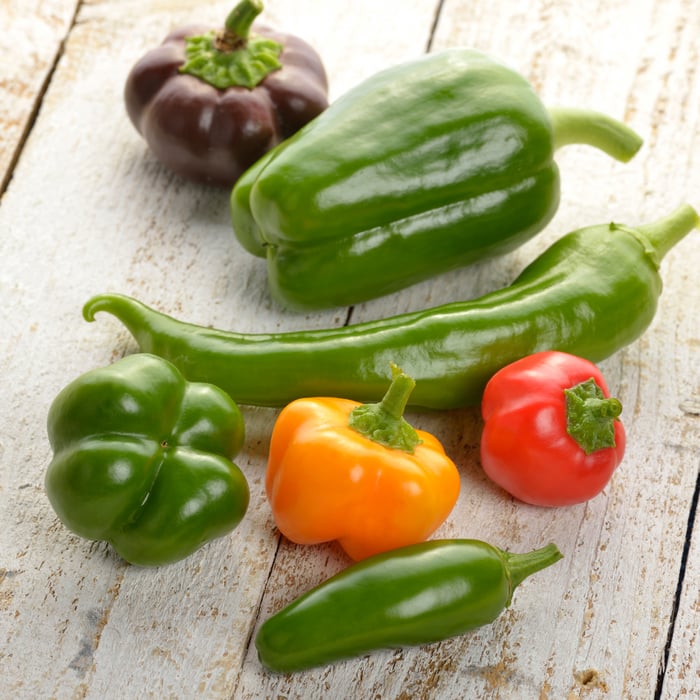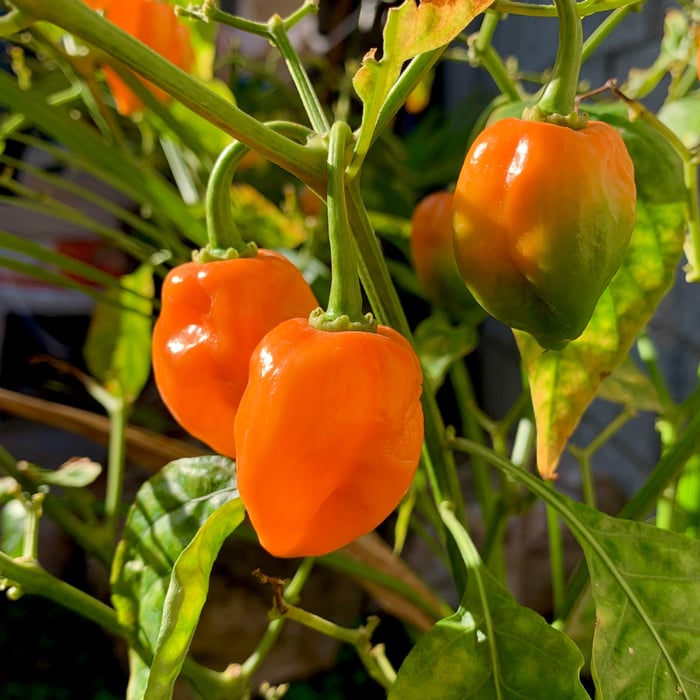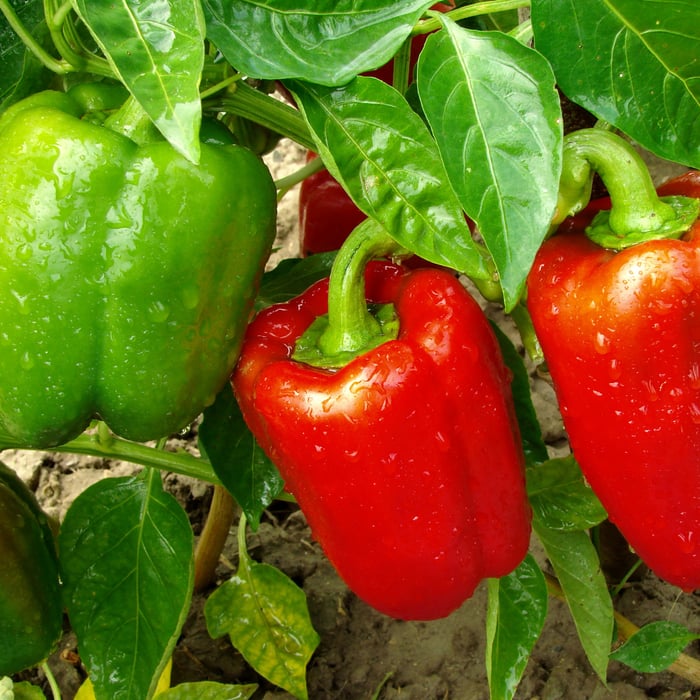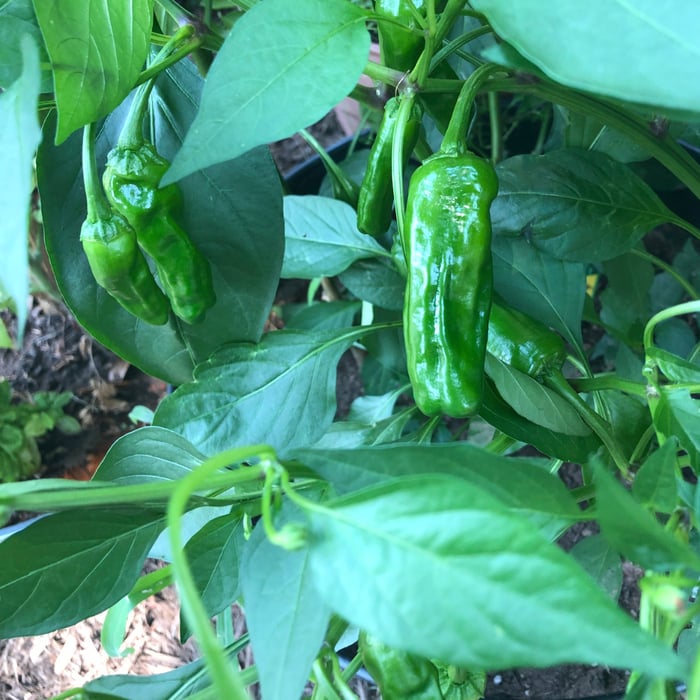Peppers are a staple ingredient in many dishes, providing both flavor and heat. Growing your own peppers from seed can be a rewarding experience, and it's not as difficult as you might think. In this article, we'll go over everything you need to know about how to grow peppers from seed, including the best pepper varieties to grow, how to plant the seeds, and how to care for your pepper seedlings.
Types of Pepper Varieties
There are many different types of peppers to choose from, each with its own unique flavor and heat level. Here are a few of the most popular types of pepper varieties:
-
Bell Peppers: These are the most common type of pepper and come in a range of colors, including green, red, orange, and yellow. Bell peppers are sweet and mild, making them a versatile ingredient in many dishes.
-
Jalapeno Peppers: Jalapeno peppers are medium-hot and are commonly used in Mexican cuisine. They are green when unripe and turn red as they mature.
-
Habanero Peppers: Habanero peppers are extremely hot and are not for the faint of heart. They are often used in hot sauces and salsas and are one of the hottest peppers in the world.
-
Cayenne Peppers: Cayenne peppers are long and thin and are usually dried and ground into a powder. They are spicy but not as hot as habanero peppers.
-
Thai Peppers: Thai peppers are small and pack a big punch. They are often used in Thai and other Southeast Asian dishes.
$15.95
8 Pepper Seeds Variety Pack – Heirloom, Non-GMO, Open-Pollinated, Non-Hybrid Seeds Elevate your garden with our 8 Pepper Seeds Variety Pack! This premium selection includes a mix of heirloom, open-pollinated, non-hybrid, non-GMO pepper seeds, perfect for beginner and experienced gardeners.… read morePepper Seed Assortment | 8 Variety Pack

Starting Peppers from Seed
When it comes to starting peppers from seed, there are a few things you need to keep in mind. First, you'll want to make sure you start your seeds early enough to give them plenty of time to grow before planting them outdoors. You'll also want to make sure you provide your seedlings with enough light and warmth to encourage healthy growth.
Here's a step-by-step guide to starting peppers from seed:
-
Determine your frost date: Before you start planting your seeds, you'll want to determine your area's average last frost date. This will give you an idea of when it's safe to plant your pepper seedlings outdoors. You'll want to start your seeds indoors about 6-8 weeks before your last frost date.
-
Plant your seeds: Fill seed trays or small pots with a good-quality potting mix. Make sure the pots have drainage holes in the bottom to prevent water from pooling. Plant 2-3 hot pepper seeds per pot, and cover them with about 1/4 inch of soil. Water the pots well and place them in a warm, sunny spot.
-
Provide warmth: Pepper seeds need warmth to germinate, so you may want to consider using a seedling heat mat. This will help keep the soil warm and encourage your seeds to sprout. Once your seeds have sprouted, remove the heat mat and place your pots under a grow light.
-
Provide light: Pepper seedlings need plenty of light to grow, so you'll want to provide them with a grow light if you don't have a sunny spot to place them in. Keep the light about 2-3 inches above the plants and leave it on for 12-16 hours per day.
-
Thin-out seedlings: Once your seedlings have developed their first sets of true leaves, it's time to thin them out. Remove the weakest seedlings from each pot, leaving only the strongest one.
-
Harden off seedlings: About 1-2 weeks before your frost date, it's time to start hardening off your seedlings. This means gradually exposing them to outdoor conditions, such as wind and direct sunlight. Start by placing your seedlings outside for a few hours each day, gradually increasing the amount of time they spend outside over the course of a week or two.
Jalapeño Pepper Seeds

$2.49
Jalapeño Pepper Seeds - Heirloom, Non-GMO, Open Pollinated, Non-Hybrid & Planting & Growing Guide Looking for premium Jalapeño Pepper Seeds? Our seeds are heirloom, non-GMO, non-hybrid, and open-pollinated, ensuring top-quality, reliable growth. Jalapeños are a favorite among gardeners and chefs… read more
Planting Peppers Outdoors
Once your seedlings are hardened off, it's time to plant them outdoors. Here's what you need to know about planting peppers outdoors:
-
Choose a sunny spot: Peppers need full sun to thrive, so choose a spot in your garden that gets at least 6-8 hours of direct sunlight per day.
-
Prepare the soil: Peppers prefer well-draining soil that's rich in organic matter. Work compost or well-rotted manure into the soil before planting your seedlings.
-
Space your plants: Pepper plants need room to grow, so space them about 18-24 inches apart.
-
Plant your seedlings: Dig a hole that's slightly larger than the root ball of your seedling. Gently remove the seedling from its pot and place it in the hole. Backfill the hole with soil and water the plant well.
Caring for Pepper Plants
Once your peppers are planted, it's important to care for them properly to ensure a healthy harvest. Here are some tips for caring for your pepper plants:
-
Water regularly: Peppers need regular watering to thrive, especially during hot, dry weather. Water your plants deeply once or twice a week, depending on the weather.
-
Mulch around plants: Mulching around your pepper plants can help keep the soil moist and suppress weeds.
-
Fertilize regularly: Peppers are heavy feeders and benefit from regular fertilization. Use a balanced fertilizer every 4-6 weeks throughout the growing season.
-
Support your plants: As your pepper plants grow, they may need support to keep them from falling over. Use stakes or cages to support your plants and keep them upright.
-
Watch for pests and diseases: Peppers can be susceptible to pests and diseases, so keep an eye out for common problems like aphids, spider mites, and blossom end rot. Use insecticidal soap or neem oil to control pests and take steps to prevent diseases by keeping the foliage dry and well-ventilated.
$2.49
Sweet California Wonder Bell Pepper Seeds - Heirloom, Non-GMO, Non-Hybrid, Open-Pollinated Grow your own delicious and vibrant Sweet California Wonder Bell Peppers with our premium heirloom, non-GMO, non-hybrid, open-pollinated seeds! Perfect for home gardeners and pepper enthusiasts, these versatile and… read moreSweet California Wonder Bell Pepper Seeds

Conclusion
Growing peppers from seed can be a fun and rewarding experience, and with the right care, you can enjoy a bountiful harvest of delicious, spicy peppers. Whether you're growing hot peppers or sweet bell peppers, starting your seeds indoors and transplanting them outdoors is a great way to get a head start on the growing season. With proper care and attention, your pepper plants will thrive and provide you with a delicious and spicy addition to your meals. Now that you know how to grow peppers from seeds, which pepper variety will you start with?
We carry a large selection of heirloom pepper seeds you can choose from to start your garden.
Frequently Asked Questions (FAQs)
-
What's the best time to start pepper seeds indoors?
It's best to start your pepper seeds indoors 6-8 weeks before your area's last frost date.
-
Do pepper seedlings need a lot of light?
Yes, pepper seedlings need plenty of light to grow. If you don't have a sunny spot to place them in, use a grow light and keep it on for 12-16 hours per day.
-
Can I plant pepper seedlings outside before the last frost date?
No, it's best to wait until after the last frost date to plant your pepper seedlings outdoors.
-
How often should I water my pepper plants?
Pepper plants need regular watering to thrive, especially during hot, dry weather. Water deeply once or twice a week, depending on the weather.
-
How do I know when my peppers are ready to harvest?
Peppers are ready to harvest when they reach their mature size and color. Bell peppers are usually harvested when they are green, red, or yellow, while hot peppers are usually harvested when they turn their mature color, which can vary from green to red, orange, or yellow, depending on the variety.
-
Can I grow peppers in containers?
Yes, peppers can be grown in containers. Choose a container that's at least 12 inches deep and wide, and make sure it has drainage holes in the bottom.
-
What's the difference between hot peppers and sweet peppers?
Hot peppers are spicy and contain capsaicin, which is responsible for their heat. Sweet peppers, also known as bell peppers, are mild and do not contain capsaicin.
Vegetable Seed Vault Kit | 35 Variety Pack

$29.95
$49.95
Ultimate Survival Seed Vault: 16,000+ Non-GMO Heirloom Vegetable Seeds for Emergency Preparedness Introducing the Seed Vault Kit, your all-in-one solution for emergency preparedness and sustainable gardening. This premium seed kit contains over 16,000 non-GMO, Heirloom, Non-Hybrid, and Open Pollinated seeds,… read more







